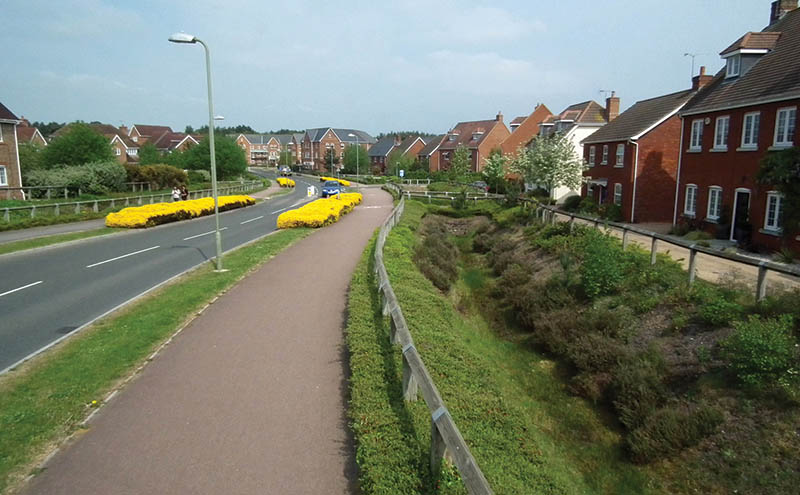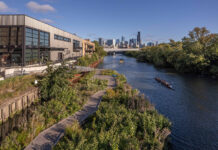
By Phil Collins, European sales director, Hydro International
FOR a long time, lack of a clear framework for who is responsible for adopting and owning Sustainable Drainage Systems (SuDS) and how they should be maintained, has been a key sticking point for more widespread delivery across the UK.
Research conducted by Engineering Nature’s Way, the knowledge-sharing initiative for SuDS, highlights a lack of clarity over maintenance and adoption, together with uncertainty over which authorities or organisations should be liable for SuDS components over their lifecycle. The feedback also suggests some local authorities lack confidence in taking over ownership of SuDS from developers.
SuDS: The State of the Nation 2016 sought the views of professionals working with SuDS at the ‘grass roots’. The survey generated more than 360 detailed responses from consulting engineers, local authority professionals and developers from across the UK.
The research insights also revealed concerns about the lack of arrangements in place for inspection of SuDS post-construction and for monitoring their ongoing performance, as well as for enforcement if SuDS features are not maintained as designed. Some people felt that a clearer national policy is needed to place a duty on public authorities, including water companies, to adopt SuDS.
Discounting those who were “unsure”, the majority of Scottish respondents (75%) believed that uncertainty around the maintenance and through-life performance of SuDS components is presenting barriers to adoption, with vesting and adoption of SUDS features by local suthorities and/or Scottish Water remaining an issue. Even within Scotland, where Sewers for Scotland has developed more detailed technical standards relating to the design, construction and adoption of SUDS than is present in most of the rest of the UK, most respondents (68%) were unsure whether or not these standards are sufficient.
Developers have to make hard commercial decisions about land-take and construction costs. They also need to be confident that they can hand over ownership of the SuDS schemes to the adopting authority or organisation once the project is complete, otherwise they may be reluctant to include them.
Our respondents believed that working to a full SuDS toolbox can mitigate these challenges. As part of this, the majority agreed that integrating proprietary or manufactured components into a drainage scheme can facilitate Green Infrastructure and the long-term maintenance of SuDS schemes.
While over half (56%) of respondents believed that it is too easy for developers to avoid implementing SuDS, the vast majority (73%) agreed that designing from a full SuDS toolbox would facilitate a sustainable approach. Most also agreed that proprietary SuDS components are essential to the SuDS toolbox (77%), and can facilitate Green Infrastructure (70%) as well as help to ensure the long-term maintenance of SuDS features (63%).
Most (68%) agreed that affordability should not be a valid reason for developers to gain exemption from SuDS and 60% agreed that making SuDS compulsory would not compromise the viability of developments.
Important new regulations and technical guidance were published during the 12 months immediately prior to the survey for England, Scotland and Wales. Most respondents (61%) welcomed the new standards and guidance now in place for designing SuDS schemes and considered them to make widespread uptake more likely. However, there were some concerns over the complexity of some industry guidance, as well as the consistency of application and interpretation of standards across the UK.
The Engineering Nature’s Way initiative provides a forum for best practice information and opinions on SuDS policy and practice in the UK, co-ordinated by Hydro International. It is centred on a website www.engineeringnaturesway.co.uk and Twitter feed @engnaturesway.
More than 16,000 consulting engineers, housebuilders, developers, local authority professionals and Environment Agency staff were invited by Engineering Nature’s Way to answer the survey’s 13 questions as well as to provide additional comments.
For a copy of the survey results visit www.engineeringnaturesway.co.uk/2016-suds-state-nation-survey








